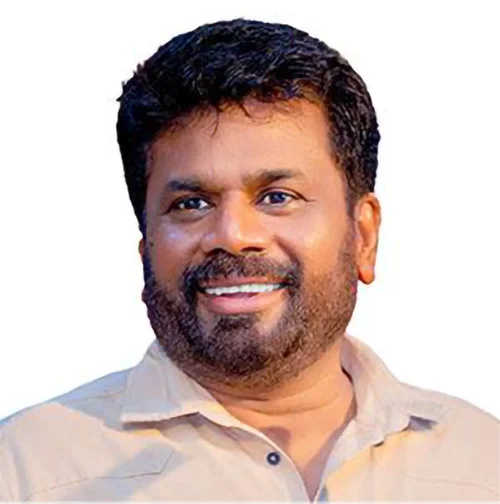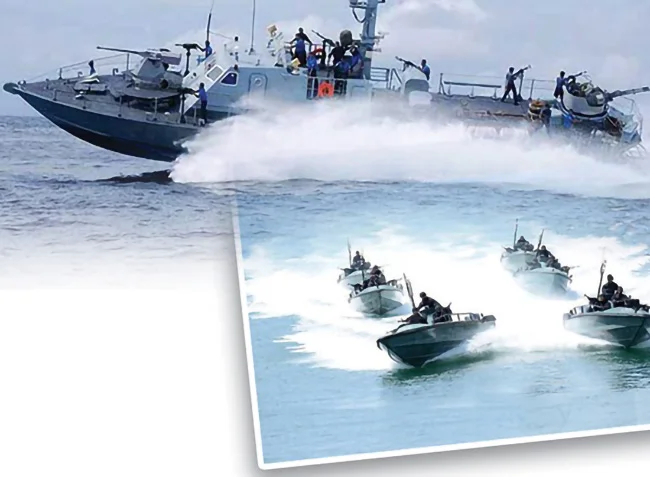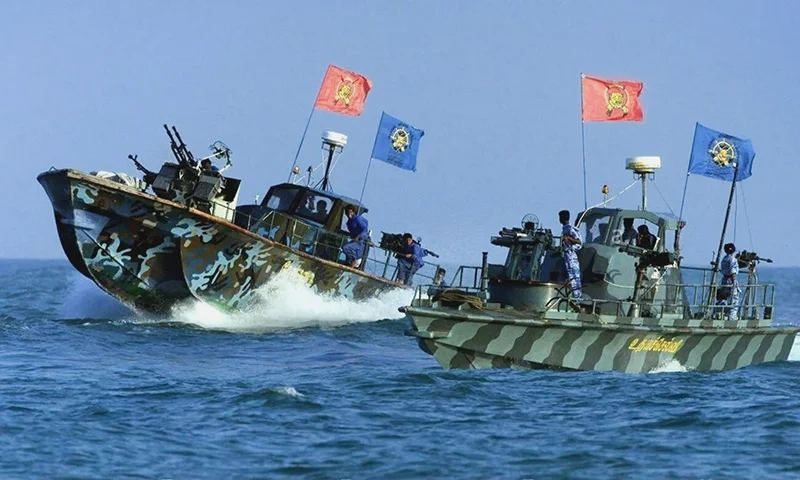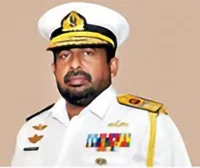Features
Unofficial Secret: Has the President reached the end of his tether?

by Rajan Philips
There used to be a running joke among American comedians during the Kennedy-Khrushchev era: a Russian dissident was running around the Kremlin shouting, “Khrushchev is mad, Khrushchev is mad.” He was arrested, tried and sentenced to 20 years in prison – two years for insulting the Secretary of the Communist Party and 18 years for revealing an official state secret! The joke will have far more purchase today with Putin than it ever did with Khrushchev. Now, the joke is also on the US after its electoral college process enabled a dangerous mad hatter like Donald Trump to be its President for one full term. He is now facing potential indictments for violating the US Espionage Act, criminal handling of government documents, and obstruction of justice. Not under any Secrets Act.
Jokes apart, the penchant for state secret seems to have arrived in Sri Lanka along with Russian crude oil that is cracking up Sri Lanka’s sole refinery at Sapugaskanda, besides hampering electric power generation and infuriating consumers with substandard petroleum products. How else could one explain President Wickremesinghe’s gazette notification to declare High Security Zones in Colombo under a 1955 law called the Official Secrets Act? Either the President is at his wits’ end, or he is being played by nitwits around him.
After a deluge of condemnations of the extraordinary gazette, there were news reports that the President, now on the second leg of his funeral tour, has asked the Attorney General to review the matter in order to have the gazette rescinded upon his return. That would have been quite a withdrawal made between two state funerals. Not so. For, on Thursday, 29 September (10:28 AM), the Daily Mirror headlined a story, viz., “Police to quiz some politicos over secret plot to overthrow govt.,” which carried this bizarre gem: “The Daily Mirror learns that despite reports that last week’s gazette declaring high-security zones in Colombo will be reversed, the government will brief the Supreme Court in the coming days over the purpose of why the HSZ’S are required and why the sites listed need to be protected.” Isn’t that something?
Unhinged Admin
For two and a half years the country suffered Gotabaya Rajapaksa’s dupes and dullards running the government. Now, we have to ask the question whether there are any adults in the Wickremesinghe Administration? Otherwise, how would anyone purportedly for the government plant a news story that “the government will brief the Supreme Court in the coming days over the purpose of why the HSZ’S are required and why the sites listed need to be protected?” How is that going to happen? In camera, or in open court? Since when did Supreme Court Justices become sounding board decoys for national security busybodies? Or proofreaders for government gazettes?
Even the crux of the Daily Mirror headline – that some politicos have been plotting to overthrow the government – is not at all substantiated in the story. No punchy innuendos or spicy speculations. No concrete evidence, of course. And the police are yet to quiz anyone! But someone has already decided to announce that the Supreme Court is going to be briefed even before the investigation has been completed. What appears to have been official secret so far is that “some politicians” have been encouraging “some ‘protester’ groups to overthrow the government by forcefully occupying Parliament and preventing a vote to elect a new President following the resignation of former President Gotabaya Rajapaksa in July.”
Now, the hitherto well-kept official secret is being revealed as the main reason for setting up High Security Zones (HSZs). And the howsoever placed government “sources” have told the Daily Mirror, “as the Supreme Court had not been consulted in the process, the relevant authorities will now consult the Supreme Court and seek its advice over the establishment of these HSZS to ensure an unhindered administration.” The administration is not unhindered but unhinged. And pigs can fly!
The question is where really is President Wickremesinghe in all this fuss that his security underlings are making about high security zones? Was he caught rushing between funerals when he was asked to authorize the Gazette Extraordinary? The widely reported news story that he would rescind the gazette after returning from his Asia-Pacific travels would indicate that he has since come to realize the utter idiocy of the whole HSZ idea and would want to rescind it forthwith. On the other hand, is the above Daily Mirror story the true position of the government? Either way, it is not unfair or uncharitable to infer that the President, after 45 years as MP and not even four and a half months as President, has come to the end of his long extended tether.
The political betrayal inherent in the very idea of considering security zones in Colombo is monumentally huge. The sense of timing involved, while the government is in the dock in Geneva for human rights violations and economic crimes, is appallingly tactless. And the purported manner of its implementation, by implicating the Supreme Court, is clumsily amateurish. The President has to take ownership for all of this, because the Gazette Extraordinary went out under his name and signature. Whether he signed it in Sinhalese or in English, I do not know. What I know is that Mr. MA Sumanthiran, TNA MP, has been having fun at the expense of the President for his apparently newfound proclivity for signing illiberal announcements in Sinhalese, and not in English.
It would be rational to expect the President to withdraw the gazette notification and send it to the shredder. He may appoint a committee (headed by the Attorney General?) to look into the matter. That is his usual wont. On the other hand, if he were to persist with the gazette as it is and give the go ahead to his security minions to set up security zones, that would be the Wickremesinghe equivalent of the fertilizer fiasco under Gotabaya Rajapaksa. And it will confirm that the President has not only reached the end of his tether, but he also has no slack left to be of any use in doing anything worthwhile for the country, let alone salvaging the crashed up economy. The forever patient Wickremesinghe faithful will have to finally realize that they cannot expect economic miracles out of someone who sloppily allows a gazette announcement on high security zones. This is not a one off incident but part of quite an established pattern.
Failed Second Chances
Among his political contemporaries, Ranil Wickremesinghe has been the most unfortunate in electoral politics. But he also leads the list of those who have been given second chances, and he has had them multiple times. He has botched them every time. His peace-process premiership foundered on the corruption of his cronies whom he let loose to do as they pleased. His yahapalanaya stewardship was run off the rail by the bond scam and was permanently disabled by his supercilious inability to work collegially with someone like Maithripala Sirisena. And now as President, at last, Mr. Wickremesinghe is in an unenviable situation where his inherent virtues are hopelessly overwhelmed by the political vices he has accumulated over forty years.
This is unfortunate, and it is more so for the country than for the man himself. For, Sri Lanka deserved and would have benefited from a brief respite of sanity and stability after the Rajapaksa turbulence. That was all he was supposed to provide. But he got too presumptuous, expanded his canvas to include everything from comprehensive political reform to ultimate economic growth, and has figuratively extended his spell all the way to 2048. The new horizon for the island to reach economic self-sufficiency, one hundred years after independence. All the while extending and expanding the Rajapaksa legacies of cabinet bloating, import profiteering and security scaremongering. I am summarizing here in six words what has been reported over six hundred times each about cabinet jockeying and import corruptions. And now, high security zones.
How does one reconcile the Wickremesinghe aspirations with the Wickremesinghe realities? That is the question. And one that only Mr. Wickremesinghe can and should answer. But he has failed to do so, satisfactorily enough for his own credibility and adequately for the country’s benefit. The HSZ Gazette Extraordinary makes this failure almost irreparable, in my view. That does not mean the end of the Wickremesinghe Administration. It may and it will likely go on to its term limits. He will be around to preside over haircuts and power cuts, but he will be constrained to spare the SLPP MPs of any cuts.
It would be idle to speculate whether or not there will be another intervention by aragalaya or a new avatar of it. No one foresaw the first one coming, and it would not have come if it were not for the dire economic provocations of the Gotabaya administration. The current administration will do everything possible to avoid provocations by keeping supplies flowing, but they will keep flowing through the same old channels of spot purchases without tender, and clearance only with commissions. They will not be through the new channels of process and probity that aragalaya aspired, and Ranil Wickremesinghe promised. His spirit might still be willing, but the flesh has never been strong. Except, it seems, when it is needed to clampdown for the sake of protecting government space from public protest. High security zones are the spatial statement of authoritarian politics. No more, no less.
That Ranil Wickremesinghe is at the end of his political tether does not mean the end of Sri Lankan politics. It is in fact a new beginning, and one that will necessarily overlap with the remainder of the Wickremesinghe Administration. The succession to it will invariably involve the present parliament, but hopefully only for the purpose of discarding the deadwood and preserving the good ones. The opposition parties have been correct in keeping out of Ranil Wickremesinghe’s National Council charade. But they will be mistaken if they, especially the JVP or the SJB, try to stage a new aragalaya. Aragalaya was an unrehearsed civil society uprising which cannot be reproduced by political rehearsals. People cannot be won over by rehearsals, but only by real politics in the real interests of the people themselves.
Features
Misinterpreting President Dissanayake on National Reconciliation

President Anura Kumara Dissanayake has been investing his political capital in going to the public to explain some of the most politically sensitive and controversial issues. At a time when easier political choices are available, the president is choosing the harder path of confronting ethnic suspicion and communal fears. There are three issues in particular on which the president’s words have generated strong reactions. These are first with regard to Buddhist pilgrims going to the north of the country with nationalist motivations. Second is the controversy relating to the expansion of the Tissa Raja Maha Viharaya, a recently constructed Buddhist temple in Kankesanturai which has become a flashpoint between local Tamil residents and Sinhala nationalist groups. Third is the decision not to give the war victory a central place in the Independence Day celebrations.
Even in the opposition, when his party held only three seats in parliament, Anura Kumara Dissanayake took his role as a public educator seriously. He used to deliver lengthy, well researched and easily digestible speeches in parliament. He continues this practice as president. It can be seen that his statements are primarily meant to elevate the thinking of the people and not to win votes the easy way. The easy way to win votes whether in Sri Lanka or elsewhere in the world is to rouse nationalist and racist sentiments and ride that wave. Sri Lanka’s post independence political history shows that narrow ethnic mobilisation has often produced short term electoral gains but long term national damage.
Sections of the opposition and segments of the general public have been critical of the president for taking these positions. They have claimed that the president is taking these positions in order to obtain more Tamil votes or to appease minority communities. The same may be said in reverse of those others who take contrary positions that they seek the Sinhala votes. These political actors who thrive on nationalist mobilisation have attempted to portray the president’s statements as an abandonment of the majority community. The president’s actions need to be understood within the larger framework of national reconciliation and long term national stability.
Reconciler’s Duty
When the president referred to Buddhist pilgrims from the south going to the north, he was not speaking about pilgrims visiting long established Buddhist heritage sites such as Nagadeepa or Kandarodai. His remarks were directed at a specific and highly contentious development, the recently built Buddhist temple in Kankesanturai and those built elsewhere in the recent past in the north and east. The temple in Kankesanturai did not emerge from the religious needs of a local Buddhist community as there is none in that area. It has been constructed on land that was formerly owned and used by Tamil civilians and which came under military occupation as a high security zone. What has made the issue of the temple particularly controversial is that it was established with the support of the security forces.
The controversy has deepened because the temple authorities have sought to expand the site from approximately one acre to nearly fourteen acres on the basis that there was a historic Buddhist temple in that area up to the colonial period. However, the Tamil residents of the area fear that expansion would further displace surrounding residents and consolidate a permanent Buddhist religious presence in the present period in an area where the local population is overwhelmingly Hindu. For many Tamils in Kankesanturai, the issue is not Buddhism as a religion but the use of religion as a vehicle for territorial assertion and demographic changes in a region that bore the brunt of the war. Likewise, there are other parts of the north and east where other temples or places of worship have been established by the military personnel in their camps during their war-time occupation and questions arise regarding the future when these camps are finally closed.
There are those who have actively organised large scale pilgrimages from the south to make the Tissa temple another important religious site. These pilgrimages are framed publicly as acts of devotion but are widely perceived locally as demonstrations of dominance. Each such visit heightens tension, provokes protest by Tamil residents, and risks confrontation. For communities that experienced mass displacement, military occupation and land loss, the symbolism of a state backed religious structure on contested land with the backing of the security forces is impossible to separate from memories of war and destruction. A president committed to reconciliation cannot remain silent in the face of such provocations, however uncomfortable it may be to challenge sections of the majority community.
High-minded leadership
The controversy regarding the president’s Independence Day speech has also generated strong debate. In that speech the president did not refer to the military victory over the LTTE and also did not use the term “war heroes” to describe soldiers. For many Sinhala nationalist groups, the absence of these references was seen as an attempt to diminish the sacrifices of the armed forces. The reality is that Independence Day means very different things to different communities. In the north and east the same day is marked by protest events and mourning and as a “Black Day”, symbolising the consolidation of a state they continue to experience as excluding them and not empathizing with the full extent of their losses.
By way of contrast, the president’s objective was to ensure that Independence Day could be observed as a day that belonged to all communities in the country. It is not correct to assume that the president takes these positions in order to appease minorities or secure electoral advantage. The president is only one year into his term and does not need to take politically risky positions for short term electoral gains. Indeed, the positions he has taken involve confronting powerful nationalist political forces that can mobilise significant opposition. He risks losing majority support for his statements. This itself indicates that the motivation is not electoral calculation.
President Dissanayake has recognized that Sri Lanka’s long term political stability and economic recovery depend on building trust among communities that once peacefully coexisted and then lived through decades of war. Political leadership is ultimately tested by the willingness to say what is necessary rather than what is politically expedient. The president’s recent interventions demonstrate rare national leadership and constitute an attempt to shift public discourse away from ethnic triumphalism and toward a more inclusive conception of nationhood. Reconciliation cannot take root if national ceremonies reinforce the perception of victory for one community and defeat for another especially in an internal conflict.
BY Jehan Perera
Features
Recovery of LTTE weapons

I have read a newspaper report that the Special Task Force of Sri Lanka Police, with help of Military Intelligence, recovered three buried yet well-preserved 84mm Carl Gustaf recoilless rocket launchers used by the LTTE, in the Kudumbimalai area, Batticaloa.
These deadly weapons were used by the LTTE SEA TIGER WING to attack the Sri Lanka Navy ships and craft in 1990s. The first incident was in February 1997, off Iranativu island, in the Gulf of Mannar.
Admiral Cecil Tissera took over as Commander of the Navy on 27 January, 1997, from Admiral Mohan Samarasekara.
The fight against the LTTE was intensified from 1996 and the SLN was using her Vanguard of the Navy, Fast Attack Craft Squadron, to destroy the LTTE’s littoral fighting capabilities. Frequent confrontations against the LTTE Sea Tiger boats were reported off Mullaitivu, Point Pedro and Velvetiturai areas, where SLN units became victorious in most of these sea battles, except in a few incidents where the SLN lost Fast Attack Craft.

Carl Gustaf recoilless rocket launchers
The intelligence reports confirmed that the LTTE Sea Tigers was using new recoilless rocket launchers against aluminium-hull FACs, and they were deadly at close quarter sea battles, but the exact type of this weapon was not disclosed.
The following incident, which occurred in February 1997, helped confirm the weapon was Carl Gustaf 84 mm Recoilless gun!
DATE: 09TH FEBRUARY, 1997, morning 0600 hrs.
LOCATION: OFF IRANATHIVE.
FACs: P 460 ISRAEL BUILT, COMMANDED BY CDR MANOJ JAYESOORIYA
P 452 CDL BUILT, COMMANDED BY LCDR PM WICKRAMASINGHE (ON TEMPORARY COMMAND. PROPER OIC LCDR N HEENATIGALA)
OPERATED FROM KKS.
CONFRONTED WITH LTTE ATTACK CRAFT POWERED WITH FOUR 250 HP OUT BOARD MOTORS.
TARGET WAS DESTROYED AND ONE LTTE MEMBER WAS CAPTURED.
LEADING MARINE ENGINEERING MECHANIC OF THE FAC CAME UP TO THE BRIDGE CARRYING A PROJECTILE WHICH WAS FIRED BY THE LTTE BOAT, DURING CONFRONTATION, WHICH PENETRATED THROUGH THE FAC’s HULL, AND ENTERED THE OICs CABIN (BETWEEN THE TWO BUNKS) AND HIT THE AUXILIARY ENGINE ROOM DOOR AND HAD FALLEN DOWN WITHOUT EXPLODING. THE ENGINE ROOM DOOR WAS HEAVILY DAMAGED LOOSING THE WATER TIGHT INTEGRITY OF THE FAC.
THE PROJECTILE WAS LATER HANDED OVER TO THE NAVAL WEAPONS EXPERTS WHEN THE FACs RETURNED TO KKS. INVESTIGATIONS REVEALED THE WEAPON USED BY THE ENEMY WAS 84 mm CARL GUSTAF SHOULDER-FIRED RECOILLESS GUN AND THIS PROJECTILE WAS AN ILLUMINATER BOMB OF ONE MILLION CANDLE POWER. BUT THE ATTACKERS HAS FAILED TO REMOVE THE SAFETY PIN, THEREFORE THE BOMB WAS NOT ACTIVATED.

Sea Tigers
Carl Gustaf 84 mm recoilless gun was named after Carl Gustaf Stads Gevärsfaktori, which, initially, produced it. Sweden later developed the 84mm shoulder-fired recoilless gun by the Royal Swedish Army Materiel Administration during the second half of 1940s as a crew served man- portable infantry support gun for close range multi-role anti-armour, anti-personnel, battle field illumination, smoke screening and marking fire.
It is confirmed in Wikipedia that Carl Gustaf Recoilless shoulder-fired guns were used by the only non-state actor in the world – the LTTE – during the final Eelam War.
It is extremely important to check the batch numbers of the recently recovered three launchers to find out where they were produced and other details like how they ended up in Batticaloa, Sri Lanka?
 By Admiral Ravindra C. Wijegunaratne
By Admiral Ravindra C. Wijegunaratne
WV, RWP and Bar, RSP, VSV, USP, NI (M) (Pakistan), ndc, psn, Bsc (Hons) (War Studies) (Karachi) MPhil (Madras)
Former Navy Commander and Former Chief of Defence Staff
Former Chairman, Trincomalee Petroleum Terminals Ltd
Former Managing Director Ceylon Petroleum Corporation
Former High Commissioner to Pakistan
Features
Yellow Beatz … a style similar to K-pop!

 Yes, get ready to vibe with Yellow Beatz, Sri Lanka’s awesome girl group, keen to take Sri Lankan music to the world with a style similar to K-pop!
Yes, get ready to vibe with Yellow Beatz, Sri Lanka’s awesome girl group, keen to take Sri Lankan music to the world with a style similar to K-pop!
With high-energy beats and infectious hooks, these talented ladies are here to shake up the music scene.
Think bold moves, catchy hooks, and, of course, spicy versions of old Sinhala hits, and Yellow Beatz is the package you won’t want to miss!
According to a spokesman for the group, Yellow Beatz became a reality during the Covid period … when everyone was stuck at home, in lockdown.
“First we interviewed girls, online, and selected a team that blended well, as four voices, and then started rehearsals. One of the cover songs we recorded, during those early rehearsals, unexpectedly went viral on Facebook. From that moment onward, we continued doing cover songs, and we received a huge response. Through that, we were able to bring back some beautiful Sri Lankan musical creations that were being forgotten, and introduce them to the new generation.”
The team members, I am told, have strong musical skills and with proper training their goal is to become a vocal group recognised around the world.
Believe me, their goal, they say, is not only to take Sri Lanka’s name forward, in the music scene, but to bring home a Grammy Award, as well.
“We truly believe we can achieve this with the love and support of everyone in Sri Lanka.”
The year 2026 is very special for Yellow Beatz as they have received an exceptional opportunity to represent Sri Lanka at the World Championships of Performing Arts in the USA.
Under the guidance of Chris Raththara, the Director for Sri Lanka, and with the blessings of all Sri Lankans, the girls have a great hope that they can win this milestone.
“We believe this will be a moment of great value for us as Yellow Beatz, and also for all Sri Lankans, and it will be an important inspiration for the future of our country.”
Along with all the preparation for the event in the USA, they went on to say they also need to manage their performances, original song recordings, and everything related.

The year 2026 is very special for Yellow Beatz
“We have strong confidence in ourselves and in our sincere intentions, because we are a team that studies music deeply, researches within the field, and works to take the uniqueness of Sri Lankan identity to the world.”
At present, they gather at the Voices Lab Academy, twice a week, for new creations and concert rehearsals.
This project was created by Buddhika Dayarathne who is currently working as a Pop Vocal lecturer at SLTC Campus. Voice Lab Academy is also his own private music academy and Yellow Beatz was formed through that platform.
Buddhika is keen to take Sri Lankan music to the world with a style similar to K-Pop and Yellow Beatz began as a result of that vision. With that same aim, we all work together as one team.
“Although it was a little challenging for the four of us girls to work together at first, we have united for our goal and continue to work very flexibly and with dedication. Our parents and families also give their continuous blessings and support for this project,” Rameesha, Dinushi, Newansa and Risuri said.
Last year, Yellow Beatz released their first original song, ‘Ihirila’ , and with everything happening this year, they are also preparing for their first album.
-

 Features2 days ago
Features2 days agoMy experience in turning around the Merchant Bank of Sri Lanka (MBSL) – Episode 3
-

 Business3 days ago
Business3 days agoZone24x7 enters 2026 with strong momentum, reinforcing its role as an enterprise AI and automation partner
-

 Business2 days ago
Business2 days agoRemotely conducted Business Forum in Paris attracts reputed French companies
-

 Business2 days ago
Business2 days agoFour runs, a thousand dreams: How a small-town school bowled its way into the record books
-

 Business2 days ago
Business2 days agoComBank and Hayleys Mobility redefine sustainable mobility with flexible leasing solutions
-

 Business3 days ago
Business3 days agoHNB recognized among Top 10 Best Employers of 2025 at the EFC National Best Employer Awards
-

 Business3 days ago
Business3 days agoGREAT 2025–2030: Sri Lanka’s Green ambition meets a grid reality check
-

 Editorial5 days ago
Editorial5 days agoAll’s not well that ends well?













